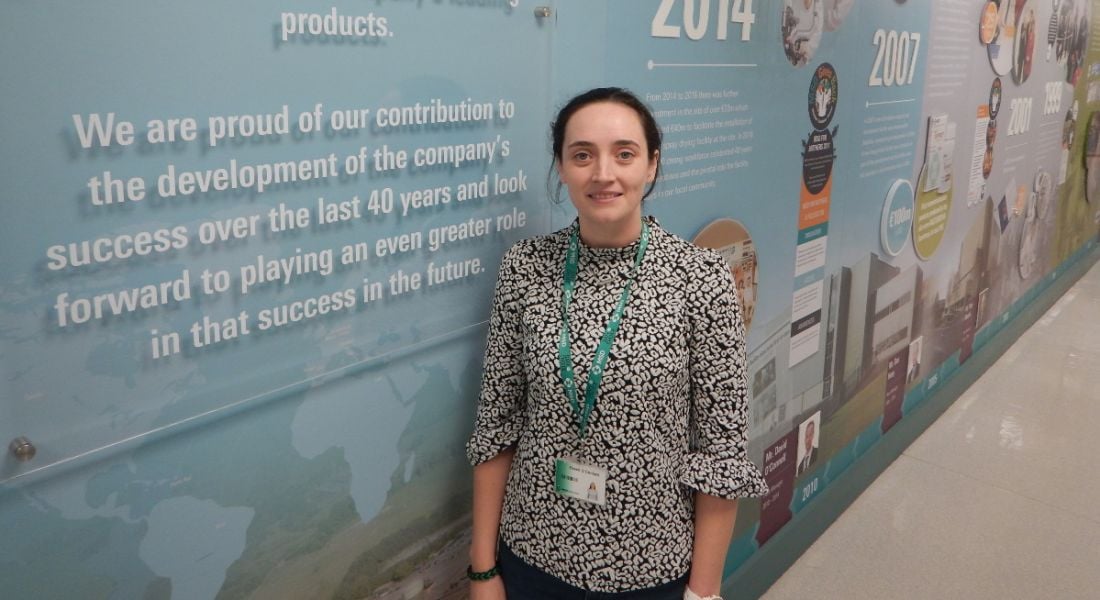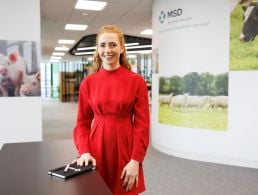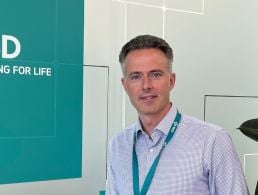Eileen O’Connell of MSD describes why pharmaceutical engineering is actually a team-based job where ‘networking is key’.
Eileen O’Connell works in pharmaceutical engineering at MSD’s Tipperary site, where she has been based for a year.
Here, she discusses the skills she has developed during her time at the company so far, as well as how her days typically play out and what she enjoys about her work.
‘Getting to know the right people and how they interact may be invaluable to project success’
– EILEEN O’CONNELL
What is your role within MSD?
I am a process development and commercialisation (PDC) engineer at MSD Ballydine in Tipperary. The PDC group work with other cross-functional groups within the plant to introduce new technologies and new medicines for commercialisation.
The PDC groups on site also work closely with our research and development colleagues in the US who develop new drugs to combat a series of different illnesses worldwide.
I specialise in a technique known as ‘spray drying’, which is an intermediate process in medicine development and is a new technology on site.
If there is such a thing, can you describe a typical day in the job?
Depending on the timing of the project that I’m working on, every day of every week is different and brings new challenges. There are a wide range of meetings with cross-functional teams that input on factors such as safety, environment, quality, finance, logistics, operations – the list goes on!
Different phases of projects have specific requirements that must be met to proceed with the process development work. This can include safety testing and regulatory documentation to be filled, which must be carried out to ensure the safety of the employees on site.
In order to bring a new product to market, lots of development work must be carried out to test the equipment, the process and the end product when it comes from the spray dryer. Development protocols must also be compiled and approved prior to any such experimentation.
Once testing is complete, it needs to be recorded and documented for us to refer to it in the future, and it may be required for regulatory submissions that help get the medicine to patients around the world.
What types of project do you work on?
Since joining MSD one year ago, I have been given the opportunity to work on various new products. I have been heavily involved in a quality risk assessment of a new medicine that is being introduced, where a cross-functional team was assembled, and I led the group to discuss the potential quality impacts to the product through a step-by-step process. This provided me with a fantastic insight into how we should keep the patient at the focus of what we do, every day.
I also recently worked on assessing process safety for a new product we will be working on in our Tipperary site. Here, we take a systematic approach and assess the impact of every step under the categories of safety, health and the environment, to avoid any potential risks from occurring.
Going forward, I will have the opportunity to develop protocols for the experimental development of this new active pharmaceutical ingredient – or API as it’s known technically – gathering data and compiling a report.
What skills do you use on a daily basis?
Project management skills are very important. Having to manage my own workload and prioritise tasks in order to reach deadlines is critical to the success of my work and my group.
Reaching milestones is important as new medicines are being developed and introduced – for a global company like MSD and the pharma industry generally, sometimes speeding up the process to allow patients to have access to life-changing medication can be critical.
People skills are also vital in this field of work. I work with a diverse range of people on a daily basis and getting to know the right people and how they interact may be invaluable to project success.
What is the hardest part of your working day?
Sometimes, the hardest part of my working day is ensuring I remain organised and calm despite a busy workload and schedule.
A way that I combat this is taking a step back to remind myself of the people that I am ultimately helping – the patients – by getting the medicine that I am working on to the market.
Some simple mindfulness skills also help and, of course, prioritising my tasks throughout the week to meet deadlines.
Do you have any productivity tips that help you through the working day?
I use the platform OneNote often to make lists and tick items off when I get them done. This gives me a sense of achievement and motivation to move onto the next task.
Sometimes I try to start my day with the harder tasks to get them completed first, or to give me time if I need to ask for help.
My colleagues at MSD are very helpful and are always willing to share their knowledge and support when needed.
When you first started this job, what were you most surprised to learn was important in the role?
I thought engineering would involve a significant amount of solitary work, figuring things out, problem-solving in silo but, in fact, it is very team-based and I found that the more people I got to know and talk to, the easier my job was. Networking was key!
How has this role changed as this sector has grown and evolved?
The industry has grown to embrace different technologies and communication methods. There is a lot more communication and collaboration with colleagues in MSD in the US than before, with more opportunity than ever to visit our other manufacturing sites around the world and learn from other engineers in different divisions.
We regularly use Webex or online video calls to talk through issues and share information that makes us work smarter and more efficiently. We are always evolving ways of communicating with peers, which is great, and keeping up with current technologies is crucial.
What do you enjoy most about the job?
The people in MSD! They make coming into work every day easy. Peers are so willing to share information and help on a daily basis with whatever you need.
There are support processes and policies in place so that if you are not getting where you need to be with a project or task, it is easy to highlight it and get help.




